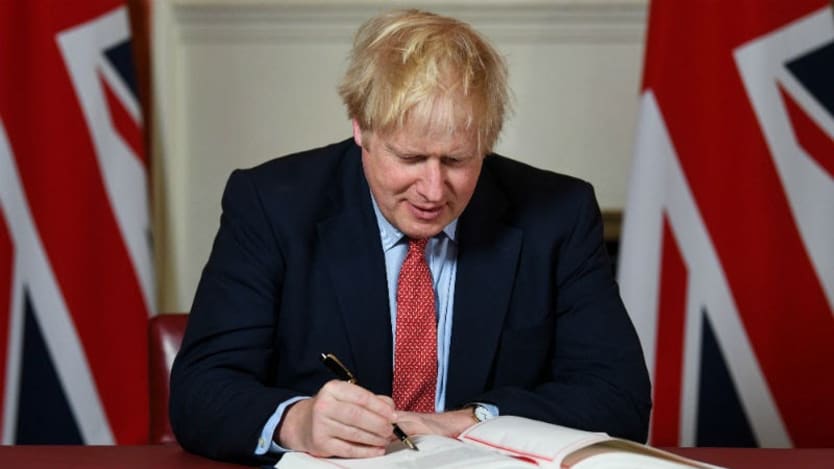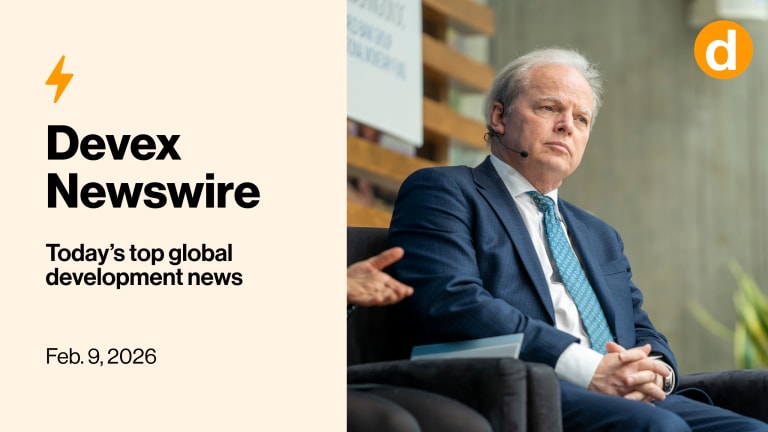
Brexit day arrives, African countries step up coronavirus preparations, and the World Bank faces an education discrimination test in Tanzania. This week in development:
The U.K. aid community is bracing for life outside the European Union, with Brexit finally poised to become a reality on Friday. What that reality will look like remains an open question, as development professionals continue to face significant uncertainty about how collaboration between the U.K. and Europe will proceed, as well as ambiguity concerning the future of the U.K. Department for International Development in a post-Brexit world. “We don’t know enough to be pessimistic or optimistic. There's still so many unknowns,” Sandra Martinsone, policy manager at Bond, told Devex. While fears that DFID would be folded into the Foreign & Commonwealth Office have abated somewhat since Prime Minister Boris Johnson won a resounding reelection victory in December, rumors of a future merger persist — as do lingering questions about whether Johnson’s administration will retain a secretary of state for international development or instead scrap this position and hand power over DFID to the foreign secretary. For months, U.K. NGOs have wondered how Brexit will affect their ability to continue seeking funding from the European Commission, and aid experts remain worried about what Brexit will mean for cooperation between two European blocs that formerly spoke with a united voice on some of the world’s biggest development challenges. Keep an eye on Devex for the full story Friday.
Health officials are scrambling to prepare for a wider spread of the new coronavirus, known as 2019-nCoV. On Thursday, World Health Organization Director-General Tedros Adhanom Ghebreyesus declared the outbreak a public health emergency of international concern, noting that there were 98 cases in 18 countries outside of China. “We don’t know what sort of damage this #2019nCoV virus could do if it were to spread in a country with a weaker health system. We must act now to help countries prepare for that possibility," Tedros said. Nations around the world are instituting increased airport screenings for passengers arriving from China and preparing their health institutions to take on additional coordination, surveillance, vaccination, and treatment in the event that the virus begins to spread more significantly outside China’s borders. Given China’s expanding trade and commercial footprint in African countries, authorities on the continent have been particularly concerned about the implications of another potential health emergency at a time when African and international health agencies are already responding to multiple outbreaks. So far, there have not been any confirmed cases of 2019-nCoV in Africa, despite rumors of unconfirmed cases. On Tuesday, the Africa Centres for Disease Control and Prevention activated its incident management system for the virus, and the Bill & Melinda Gates Foundation announced a $5 million commitment to help the institution scale up its surveillance efforts.
The World Bank has postponed a decision about whether to loan $500 million to Tanzania after civil society groups protested that the funding would serve as an endorsement of President John Magufuli’s policies. The purpose of the planned loan program is to improve access to secondary education, a goal that runs counter to a law endorsed by Magufuli in 2017, which bans pregnant girls from school. That policy has included compulsory pregnancy tests for girls from grades eight and up, and it forced about 5,500 girls to discontinue schooling in 2017, according to the bank’s estimates. Civil society groups sent a letter to the bank last week — anonymously, due to fear of retribution — urging the institution to delay funding until the government demonstrates a commitment to “gender equality and the rule of law.” On Monday, the day before the vote on the loan was scheduled to take place, the World Bank board held an emergency meeting to discuss the civil society concerns, following a request from one of the members. “The board will be setting a future date for its consideration of the project,” the bank told the Financial Times. “Now is the opportunity to redesign and improve the program, so that it provides educational opportunity for all girls without discrimination,” wrote opposition politician Zitto Kabwe on Twitter.








